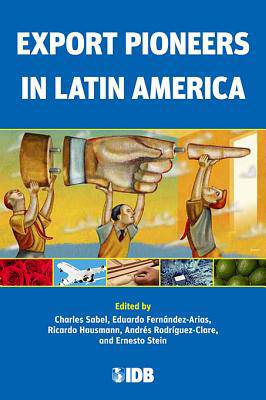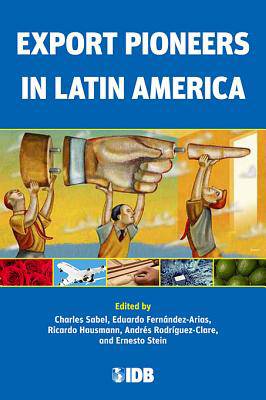
- Afhalen na 1 uur in een winkel met voorraad
- Gratis thuislevering in België vanaf € 30
- Ruim aanbod met 7 miljoen producten
- Afhalen na 1 uur in een winkel met voorraad
- Gratis thuislevering in België vanaf € 30
- Ruim aanbod met 7 miljoen producten
Zoeken
Export Pioneers in Latin America
Charles Sabel, Eduardo Fernandez-arias, Ricardo Hausmann, Andres Rodriguez-clare, Ernesto Stein
Paperback | Engels
€ 33,45
+ 66 punten
Omschrijving
Why do some new export activities succeed while others do not? Why are some not even attempted? In this book, distinguished research teams analyze eleven cases of new export endeavors in six Latin American countries to learn how export pioneers are born and jump-start a virtuous process leading to economic transformation. The case studies range from blueberries in Argentina and fresh cut flowers in Colombia to aircraft in Brazil and software in Uruguay. They put to the test two conjectures: that costly burdens to entrepreneurial self-discovery due to imitation by competitors deter would-be pioneers (the low appropriation hypothesis advanced by Harvard's Hausmann and Rodrik) and that new export activities are a complex enterprise that only reach fruition when the innovative contributions of many actors are somehow provided jointly (the failure of coordination hypothesis). These case studies offer many examples in which cooperation proved absolutely vital to export success, while problems of appropriation appeared less critical. Interestingly, in solving coordination problems, innovators frequently mitigated problems of appropriation. Coordination is difficult, however, and, as the tales of these export pioneers suggest, industrial policy has an important role to play in facilitating it.
Specificaties
Betrokkenen
- Auteur(s):
- Uitgeverij:
Inhoud
- Aantal bladzijden:
- 326
- Taal:
- Engels
Eigenschappen
- Productcode (EAN):
- 9781597821414
- Verschijningsdatum:
- 11/06/2012
- Uitvoering:
- Paperback
- Formaat:
- Trade paperback (VS)
- Afmetingen:
- 152 mm x 229 mm
- Gewicht:
- 521 g

Alleen bij Standaard Boekhandel
+ 66 punten op je klantenkaart van Standaard Boekhandel
Beoordelingen
We publiceren alleen reviews die voldoen aan de voorwaarden voor reviews. Bekijk onze voorwaarden voor reviews.











